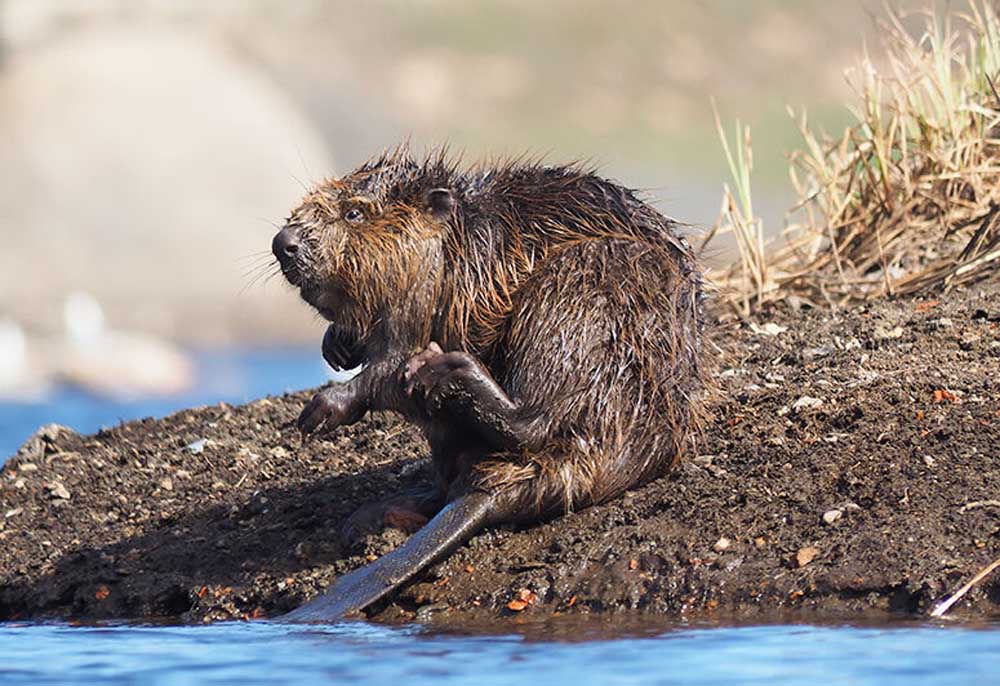ONLINE Dan Fulleton Farm Equipment Retirement Auction
THIS WILL BE AN ONLINE AUCTION Visit bakerauction.com for full sale list and information Auction Soft Close: Mon., March 3rd, 2025 @ 12:00pm MT Location: 3550 Fulleton Rd. Vale, OR […]
Published 1:23 pm Wednesday, April 5, 2023

A proposal to strengthen Oregon’s beaver protections is headed for a House floor vote after a last-minute amendment secured its unanimous approval by a key committee.
Beavers would no longer be considered predatory animals under House Bill 3464, allowing state wildlife officials to manage the species on private lands instead of farm regulators.
Supporters of the bill argue that as “nature’s engineers,” beavers make improvements to waterways that are particularly valuable as the state faces increasing droughts and wildfires.
“Despite these clear benefits, Oregon law currently allows unlimited beaver killing year-round, including during breeding and rearing season, without a permit — even if the beaver is not causing any damage,” said Rep. Pam Marsh, D-Ashland.
Under the original version of HB 3464, the changed designation meant landowners would need to obtain permits to kill beavers. Such permits aren’t required for predatory animals, including feral swine, coyotes and rodents.
While the bill would ensure “lethal removal is still an option,” permits would allow beaver populations to be managed and tracked by the state’s Department of Fish and Wildlife similarly to fur-bearing animals, Marsh said.
“This is just another species that will be added to the list,” she said.
Though the bill’s proponents claim these permits can be obtained over email free-of-charge within about 30 minutes, the new requirement didn’t sit well with critics who said they’d impose a time-consuming barrier during pending disasters.
If an irrigation canal is failing, for example, urgent repairs may require taking the life of a beaver to prevent flooding that endangers people and property, said Gene Souza, executive director of the Klamath Irrigation District.
“There are emergency situations that occur at two in the morning, sometimes on Sundays, sometimes on Saturdays,” Souza said.
The bill’s supporters acknowledged that beavers can be damaging but said their usefulness justified regulating their lethal removal more strictly.
Beaver dams reconnect creeks and streams with their floodplains, buffering against drought effects and creating “refugia” that shelter wildlife, livestock and habitat from wildfires, according to proponents.
Unlike human efforts to restore impaired waterways, which can take significant investments over decades, beavers can perform the work within years without charging a single dollar, said Emily Fairfax, an assistant professor of environmental science at California State University.
“They’re quickly rebuilding a lot of that hydrological, ecological and physical complexity that make these landscapes resistant and resilient to disturbances,” she said.
The potential for beavers to have positive environmental impacts wasn’t in doubt even among the bill’s skeptics, who instead worried these contributions aren’t appreciated in every situation.
“Slowing water down, making good wetlands a sponge, is a great thing,” said Rep. Mark Owens, R-Crane. “But if it comes in the middle of an orchard, it might not be a good thing.”
However, the disagreement did not prove intractable among the 10 members of the House Climate, Energy and Environment Committee, all of whom voted to recommend HB 3464 shortly before an April 4 legislative deadline that would have otherwise killed the proposal.
The committee’s unanimous support was made possible by an amendment allowing for lethal removal without a permit if the beaver “damages or imminently threatens infrastructure or agricultural crops,” though the killing must still be reported to state wildlife officials.
The specifics circumstances under which beavers can be killed with or without a permit will be set out in rules written by the state’s Fish and Wildlife Commission, taking into account non-lethal tools and ways to coexist with beavers, among other factors.
Because the rule-making was determined to have a minimal fiscal impact, HB 3464 will soon be scheduled for a vote by the full House without first clearing a budget-setting committee.
The amendment allowing for lethal removal without a permit hasn’t won over the Oregon Farm Bureau, which remains opposed to the bill.
“Beavers are not a protected species, they’re abundant in the Willamette Valley and they cause damage to our operations,” said Lauren Poor, the organization’s vice president of government and legal affairs.
The reporting requirement is another regulatory hoop for farmers to jump through and the bill inappropriately shifts jurisdiction over beavers to state wildlife regulators, Poor said.
The species should remain under the authority of the state’s Department of Agriculture on private working lands that are prone to destruction, she said.
“When they’re on our operations, they’re not wildlife, they’re predatory animals,” Poor said.